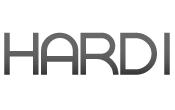Market Segment

May 29, 2014
HARDI Members Concerned About Imports
Written by Sandy Williams
After a weak start to 2014 business activity is going strong in May said participants on the HARDI monthly galvanized steel call. Steel Market Update (SMU) joined HARDI wholesalers who supply galvanized steel to the construction trades to talk about concerns in the industry including domestic mill price trends as well as the impact of imported steel to their industry.
One month ago, on the last HARDI sponsored conference call, lean inventories coupled with supply shortages and a slight improvement in demand were the main topics of conversation.
Since then, many of the wholesalers and others associated with HARDI, were concerned that galvanized steel prices had peaked with one wholesaler reporting at least one mill willing to make “deals” at lower price levels than seen one month earlier. Most reported that they expected prices to soften but both steel mills and service centers were currently holding the line.
A service center on the call told participants, “I think everybody on this call should realize that June is a month to be opportunistic.” He went on to point out production holes from maintenance and outage issues at the integrated mills have created opportunities for buyers, especially on heavy gauge wide items.
The same distributor said, “second quarter, May to June, looks very strong but there is uncertainty ahead in third quarter due to lower raw material prices and the influx of imports.” He suggested keeping an eye on the potential for trade cases to be filed against foreign steel.
“And of course, demand,” he added. “Indications are that demand is going to be up in these coming months, a little bit of year over year growth combined with some pent up demand from the winter. But as we all know, seeing is believing, so will have to let that play out and see where we are going.”
A discussion ensued on steel imports. At least one steel mill located in the South and close to ports where foreign steel arrives was reported as struggling because of lower priced foreign imports, especially on coated products.
The Midwest mills order books and pricing were reported as stronger since they are still catching up on supply issues. The Midwest is likely to see fewer imports and should be able to capture higher prices than in the South.
Distributors are finding some customers don’t care if steel is domestic or foreign, “the customer wants it as cheap as possible and they don’t care where the steel is from.”
A wholesaler in the Midwest finds that customers are asking for US made steel, but competitors are not being honest about origins or whether steel is G60 or G90. This has been a common theme on a number of the previous HARDI calls as wholesalers struggle to deal with service center competition and those who choose to be less than honest about the products being sold to the mechanical contractors.
Another participant, who sells to government projects, said “made and melt” requirements are being enforced. “We have to supply, in many cases, from the mills information that certifies that it is domestic made.” Certifications are required before shipment.
One of the service centers on the call responded with, “I think we want people to buy American, not just because of what we do but because it promotes a better thing for our country. But again that has to start with us, it’s not going to start with us talking about price, we’ve got to push something like that, and it is a lot easier said than done.”
A second service center on the call told the group that the gap between foreign and domestic pricing is quite high with foreign prices referenced as being “quite strong right now.”
While speaking to one of the wholesalers prior to the HARDI call, SMU learned that one of the issues for those in the East is that one of the domestic suppliers (NLMK USA) no longer is producing 28 gauge and lighter galvanized. This has forced this one wholesaler into the foreign market in order to cover their light gauge galvanized needs.
The good news gathered from the call was every wholesaler reported exceptional business during the month of April with May continuing to be quite good. This included the one wholesaler on the West Coast on the call who reported business and prices as being “strong” in their market.
In Canada they are dealing with a currency issue as the U.S. dollar is now worth 11 percent more than the Canadian dollar. This prevents the Canadian companies from going to the U.S. as leverage against the prices coming out of Dofasco which is the main construction market supplier in Canada.







